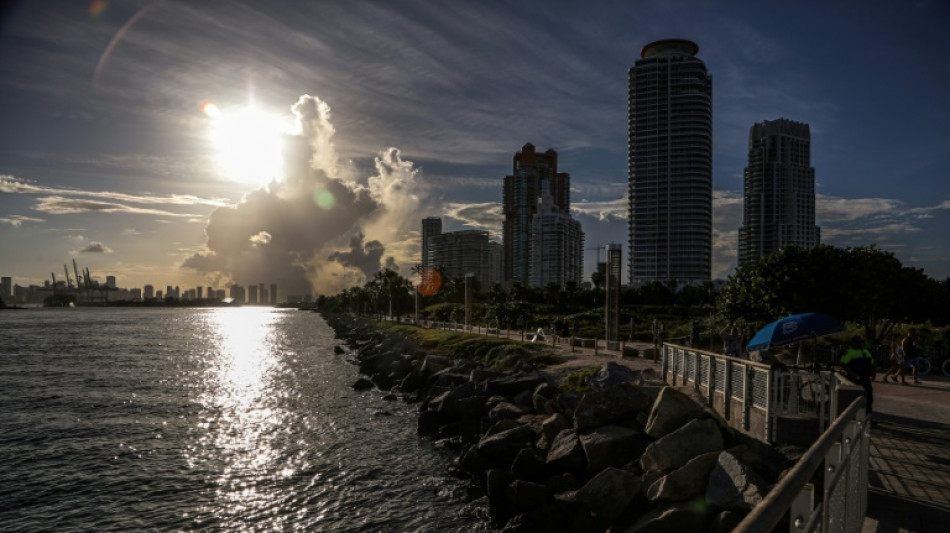
Southern US swelters in brutal heat wave

A dangerous and prolonged heat wave blanketed large parts of the southern United States on Tuesday, buckling highways and forcing people into air-conditioned shelters as temperatures soared past 115 degrees Fahrenheit (46 Celsius).
Excessive heat warnings were in place from Arizona in the southwest all the way to Alabama in the southeast, with south and central Texas and the Lower Mississippi Valley worst hit, the National Weather Service (NWS) said.
"There may be more danger than a typical heat event, due to the elevated longevity or record high nighttime lows and elevated heat index readings during the day," the NWS said, urging Americans in affected areas to drink plenty of fluids, stay indoors, and check on vulnerable relatives.
Climate change is causing increasingly frequent and intense heat waves in major cities across the United States, according to the Environmental Protection Agency (EPA).
Most of Texas had already warmed by 1.5 degrees Fahrenheit by 2016, as compared with a century before, because of accumulated historic greenhouse gas emissions, the EPA said.
The sweltering conditions are expected to expand throughout the south beginning Wednesday and continue into the long July 4 holiday weekend.
The extreme heat appears to have already claimed some lives.
Last week, a 66-year-old postal worker in Dallas fainted while delivering mail as the heat index hovered around 115F. He died hours later, the US Postal Service told the media, though the cause of death is still being investigated.
And on Friday, a 14-year-old boy collapsed from exhaustion while hiking in Big Bend National Park in Texas and later died, according to an official statement.
His stepfather left the scene to hike back to their vehicle to find help while the teen's brother attempted to carry him back to the trailhead. The father was later found dead in a car crash.
- Strain on power grid -
The strain is sure to put the power grid in Texas to the test, as millions of people switch on their air conditioners to cope, with demand peaking around late afternoon.
ERCOT, the state utility operator, has issued a Weather Watch, calling on individuals and institutions to voluntarily save energy to avoid an emergency -- but has so far been able to cope, thanks in part to an increasing contribution from solar power in recent years.
Renewable energy sources -- solar and wind -- are currently responsible for around 35 percent of the grid's mix, according to GridStatus.io.
The extreme heat was taking a toll on Texas highways, causing roads to crack and buckle, with the state's Department of Transportation reporting numerous repairs in the last week, primarily in the Houston area.
Vulnerable people such as the homeless and those without air conditioning were going to public cooling centers run by local authorities or the Red Cross.
Animals, too, were suffering. The Houston Humane Society said 12 cats and one dog were found dead in an abandoned apartment. The group was able to rescue six cats from the property.
T.Cunningham--TNT